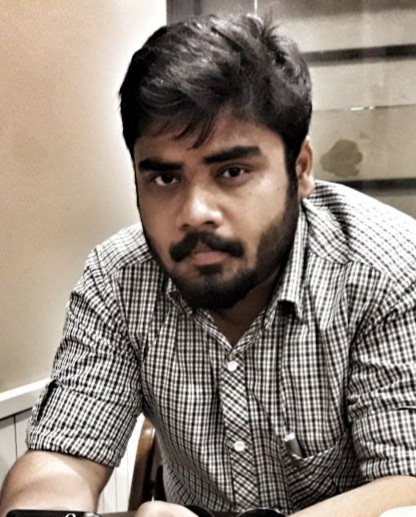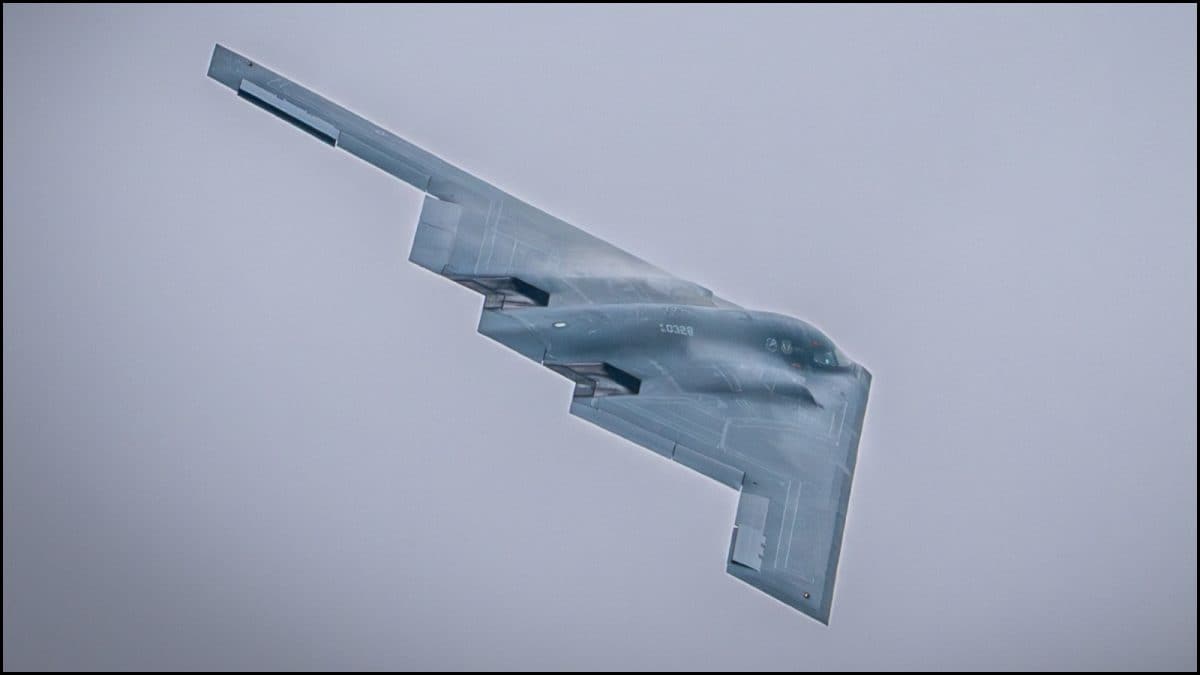ARTICLE AD BOX
Last Updated:July 01, 2025, 07:00 IST
While accepting the closure report, the court said it is of the opinion that the CBI investigated all plausible avenues available and the present closure report stands accepted

Fatima Nafees, mother of Najeeb Ahmed of JNU. (Image: PTI/Shahbaz Khan)
Five hundred police personnel, sniffer dogs, mounted police, photographers and videographers, 560 witness examinations, analysis of more than 200 documents, testimonies from 116 auto-rickshaw drivers and a cash reward of Rs 10 lakh – despite all of this, the disappearance of JNU student Najeeb Ahmed in October 2016 remains a mystery.
A city court on Monday accepted the CBI’s closure report filed in the case of Najeeb Ahmed’s disappearance. While accepting the report, the court said it is of the opinion that the premier central agency investigated all plausible avenues available and the present closure report stands accepted.
“The court also earnestly hopes that Najeeb Ahmed shall be traced soon. This court expresses its regret that while the proceedings in the present case end with this closure report, a closure for Najeeb’s mother and other loved ones still eludes us. The CBI is at liberty to reopen the investigation on receipt of any credible information… and shall intimate the court," the court observed.
Delhi Police initially handled the investigation, but it was later transferred to the CBI after Najeeb’s mother filed a habeas corpus petition in the Delhi High Court expressing dissatisfaction with the probe.
In October 2018, the CBI closed its investigation into the case. During the investigation it had also appeared that Najeeb had an altercation with some of his hostel mates on the intervening night of October 14 and 15, 2016.
Noting that the court, while accepting the closure report, said while the allegations regarding physical assault and verbal threats against Najeeb on the night of October 14, 2016, are supported by witness testimonies, those events cannot be linked to his subsequent disappearance.
“The CBI has, through the evidence collected (the genuineness of which has not been disputed), satisfactorily explained the whereabouts of the suspects and ruled out their involvement. The mere existence of a motive or hostility, sans any corroborative material, cannot be a substitute for proof," the court said.
Najeeb was an MSc Biotechnology student at JNU and was allotted room number 106 in Mahi-Mandvi hostel of the university. Police found during its investigation that elections of the Mahi-Mandvi hostel were scheduled to take place on October 17, two days before which Najeeb went missing.
WHAT HAPPENED?
It surfaced that students, namely, Vikrant Kumar, Sunil Pratap Singh and Ankit Kumar Roy, contesting for the post of mess secretary and hostel committee member, were campaigning for the same, on the night of October 14, 2016.
They went to visit room number 106 of the hostel, which was opened by Najeeb, and they requested him to cast his vote in their favour. As per the investigation, Najeeb got angry about this, abused, and slapped Vikrant Kumar (one of the campaigning students) twice and questioned him about the red thread (kalava) on his hand. Najeeb also pushed Sunil Pratap Singh, as he tried to intervene. At this point, Ankit Roy went to call the security guard from the ground floor of the hostel.
As the situation intensified, the hostel security guard, Rajesh Kumar Jat called and requested the supervisor and hostel wardens. An emergency meeting was called in the warden’s office on the same night and, as per the statements of witnesses, Najeeb orally admitted that he had slapped Vikrant without any provocation and also pleaded “sorry".
Both Vikrant and Najeeb were asked to submit in writing about the incident and Vikrant gave a complaint, mentioning that Najeeb had slapped him, while Najeeb wrote a one line submission: ‘I don’t remember.’
After the meeting, Najeeb complained of back pain and was taken to Safdarjung Hospital in the JNU ambulance. Najeeb’s mother Fatima Nafees, who had been informed about the incident, started for Delhi from Badaun in Uttar Pradesh around 3.30 am along with her younger son, Mujeeb Ahmed.
She last spoke to Najeeb around 11.30 am from Anand Vihar, but when she reached the hostel around 1.00 pm, her son was missing and his mobile phone as well as laptop were in the hostel room.
According to the witnesses, Najeeb was last seen boarding an auto-rickshaw and was not carrying any luggage. He was wearing the same clothes as the night before.
WHO ARE THE SUSPECTS?
In this case, there were nine prime suspects – mostly Najeeb’s hostel mates with whom he got into a fight.
The court said it has perused the digital foot-printing report of the call records and the Central Forensic Science Laboratory reports. It has been revealed, the main accused remained there, from the morning of October 15, 2016 till lunch when the match got over.
It further noted that another one of the suspects, went to the library along with Deepak on October 15 at around 10.30 am. Moreover, another suspect – Ankit Kumar Roy – had gone to attend the School of Language on the morning of Octoner in 15 and returned to the hostel only at 1.30 pm, the court noted.
THE INVESTIGATION
It was on the night of October 15, 2016 when the Vasant Kunj police station (North) in South Delhi, received Najeeb Ahmed’s missing complaint which was converted into FIR the next day.
Initially, wireless messages were sent out to all units concerned, police stations, districts, and missing person’s details were uploaded on Zonal Integrated Police Net (ZIPNET). As the investigation proceeded, police examined staff, students and classmates of Najeeb.
Multiple police teams conducted combing operations on the JNU campus as well as in Sanjay Van, behind JNU, twice, with private security personnel from JNU. At the JNU campus, the lands, buildings, water tanks and forest area were also thoroughly searched on December 19 and 20, 2016, in a massive search operation led by a Deputy Commissioner of Police (DCP) consisting about 560 police officials, assisted by sniffer dogs, mounted police, photographers and videographers.
At least 560 witnesses, including Ahmed’s family members, classmates, hostel administration among doctors treating Najeeb were examined, security guards and students at JNU, members of the proctorial enquiry committee, and the officials of Delhi Police involved in search of the JNU premises and other neighbouring areas.
The probe agency also recorded testimonies of 116 auto-rickshaw drivers plying in and around JNU campus and 61 of them operating around Jamia Millia University.
Indian Railways said information was sought from taxi operators, cab service providers, railways, regarding the possibility of any travel, which could have been undertaken by Najeeb. It was also checked if he had left the city by air.
Scrutiny of his bank accounts and information sought from the branches of the banks to identify whether any transaction had taken place in his bank account, ever since his disappearance, were also undertaken.
In fact, a Yellow Notice was also issued through Interpol, in order to trace Najeeb and the same was published in all the member-countries of Interpol. Moreover, a reward of Rs 10,00,000 was also announced for the public.

Anvit Srivastava, Principal Correspondent at CNN-News18, covers crime, security, policing and society in Delhi. His impactful ground reports have helped him make his mark among the select credited journalists i...Read More
Anvit Srivastava, Principal Correspondent at CNN-News18, covers crime, security, policing and society in Delhi. His impactful ground reports have helped him make his mark among the select credited journalists i...
Read More
- Location :
- First Published:
News india CBI Files Closure Report In Najeeb Ahmed Case: 10 Years On, JNU Student's Disappearance Still A MysteryFive hundred police personnel, sniffer dogs, mounted police, photographers and videographers, 560 witness examinations, analysis of more than 200 documents, testimonies from 116 auto-rickshaw drivers and a cash reward of Rs 10 lakh – despite all of this, the disappearance of JNU student Najeeb Ahmed in October 2016 remains a mystery. A city court on Monday accepted the CBI’s closure report filed in the case of Najeeb Ahmed's disappearance. While accepting the report, the court said it is of the opinion that the premier central agency investigated all plausible avenues available and the present closure report stands accepted. "The court also earnestly hopes that Najeeb Ahmed shall be traced soon. This court expresses its regret that while the proceedings in the present case end with this closure report, a closure for Najeeb’s mother and other loved ones still eludes us. The CBI is at liberty to reopen the investigation on receipt of any credible information… and shall intimate the court," the court observed. Delhi Police initially handled the investigation, but it was later transferred to the CBI after Najeeb’s mother filed a habeas corpus petition in the Delhi High Court expressing dissatisfaction with the probe. In October 2018, the CBI closed its investigation into the case. During the investigation it had also appeared that Najeeb had an altercation with some of his hostel mates on the intervening night of October 14 and 15, 2016. Noting that the court, while accepting the closure report, said while the allegations regarding physical assault and verbal threats against Najeeb on the night of October 14, 2016, are supported by witness testimonies, those events cannot be linked to his subsequent disappearance. “The CBI has, through the evidence collected (the genuineness of which has not been disputed), satisfactorily explained the whereabouts of the suspects and ruled out their involvement. The mere existence of a motive or hostility, sans any corroborative material, cannot be a substitute for proof,” the court said. Najeeb was an MSc Biotechnology student at JNU and was allotted room number 106 in Mahi-Mandvi hostel of the university. Police found during its investigation that elections of the Mahi-Mandvi hostel were scheduled to take place on October 17, two days before which Najeeb went missing. WHAT HAPPENED? It surfaced that students, namely, Vikrant Kumar, Sunil Pratap Singh and Ankit Kumar Roy, contesting for the post of mess secretary and hostel committee member, were campaigning for the same, on the night of October 14, 2016. They went to visit room number 106 of the hostel, which was opened by Najeeb, and they requested him to cast his vote in their favour. As per the investigation, Najeeb got angry about this, abused, and slapped Vikrant Kumar (one of the campaigning students) twice and questioned him about the red thread (kalava) on his hand. Najeeb also pushed Sunil Pratap Singh, as he tried to intervene. At this point, Ankit Roy went to call the security guard from the ground floor of the hostel. As the situation intensified, the hostel security guard, Rajesh Kumar Jat called and requested the supervisor and hostel wardens. An emergency meeting was called in the warden’s office on the same night and, as per the statements of witnesses, Najeeb orally admitted that he had slapped Vikrant without any provocation and also pleaded “sorry”. Both Vikrant and Najeeb were asked to submit in writing about the incident and Vikrant gave a complaint, mentioning that Najeeb had slapped him, while Najeeb wrote a one line submission: ‘I don’t remember.’ After the meeting, Najeeb complained of back pain and was taken to Safdarjung Hospital in the JNU ambulance. Najeeb’s mother Fatima Nafees, who had been informed about the incident, started for Delhi from Badaun in Uttar Pradesh around 3.30 am along with her younger son, Mujeeb Ahmed. She last spoke to Najeeb around 11.30 am from Anand Vihar, but when she reached the hostel around 1.00 pm, her son was missing and his mobile phone as well as laptop were in the hostel room. According to the witnesses, Najeeb was last seen boarding an auto-rickshaw and was not carrying any luggage. He was wearing the same clothes as the night before. WHO ARE THE SUSPECTS? In this case, there were nine prime suspects – mostly Najeeb’s hostel mates with whom he got into a fight. The court said it has perused the digital foot-printing report of the call records and the Central Forensic Science Laboratory reports. It has been revealed, the main accused remained there, from the morning of October 15, 2016 till lunch when the match got over. It further noted that another one of the suspects, went to the library along with Deepak on October 15 at around 10.30 am. Moreover, another suspect – Ankit Kumar Roy – had gone to attend the School of Language on the morning of Octoner in 15 and returned to the hostel only at 1.30 pm, the court noted. THE INVESTIGATION It was on the night of October 15, 2016 when the Vasant Kunj police station (North) in South Delhi, received Najeeb Ahmed's missing complaint which was converted into FIR the next day. Initially, wireless messages were sent out to all units concerned, police stations, districts, and missing person's details were uploaded on Zonal Integrated Police Net (ZIPNET). As the investigation proceeded, police examined staff, students and classmates of Najeeb. Multiple police teams conducted combing operations on the JNU campus as well as in Sanjay Van, behind JNU, twice, with private security personnel from JNU. At the JNU campus, the lands, buildings, water tanks and forest area were also thoroughly searched on December 19 and 20, 2016, in a massive search operation led by a Deputy Commissioner of Police (DCP) consisting about 560 police officials, assisted by sniffer dogs, mounted police, photographers and videographers. At least 560 witnesses, including Ahmed's family members, classmates, hostel administration among doctors treating Najeeb were examined, security guards and students at JNU, members of the proctorial enquiry committee, and the officials of Delhi Police involved in search of the JNU premises and other neighbouring areas. The probe agency also recorded testimonies of 116 auto-rickshaw drivers plying in and around JNU campus and 61 of them operating around Jamia Millia University. Indian Railways said information was sought from taxi operators, cab service providers, Indian Railways, regarding the possibility of any travel, which could have been undertaken by Najeeb. It was also checked if he had left the city by air. Scrutiny of his bank accounts and information sought from the branches of the banks to identify whether any transaction had taken place in his bank account, ever since his disappearance, were also undertaken. In fact, a Yellow Notice was also issued through Interpol, in order to trace Najeeb and the same was published in all the member-countries of Interpol. Moreover, a reward of Rs 10,00,000 was also announced for the public.



.png)
.png)
.png)
















 4 hours ago
3
4 hours ago
3








 English (US) ·
English (US) ·